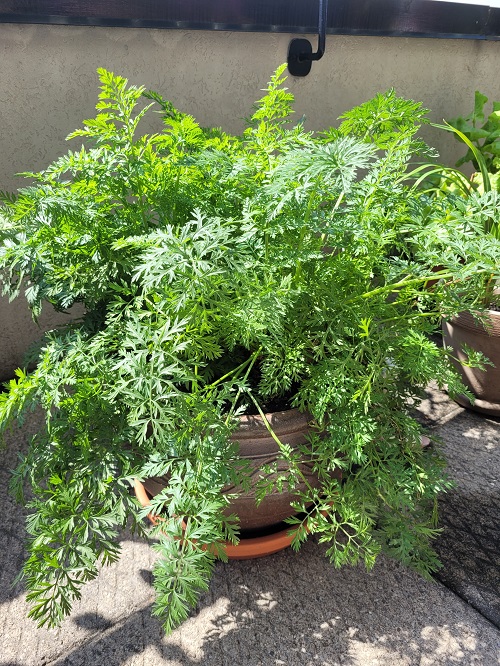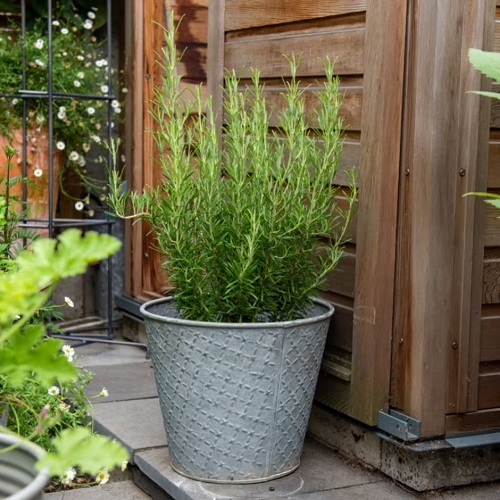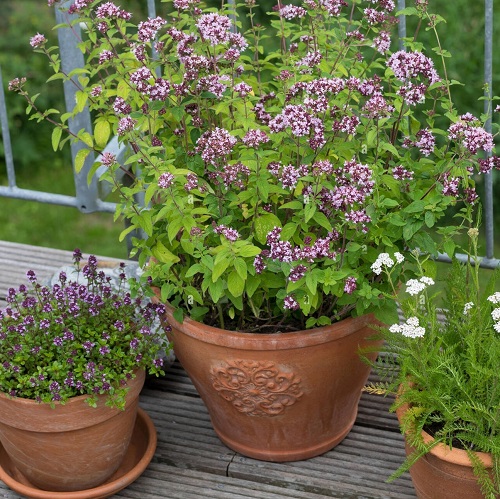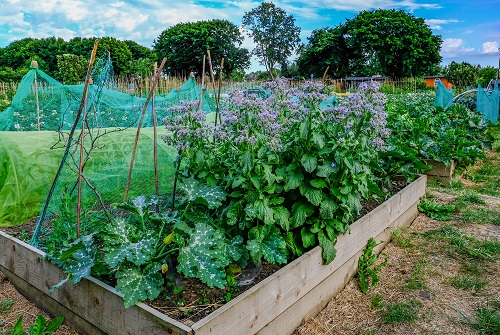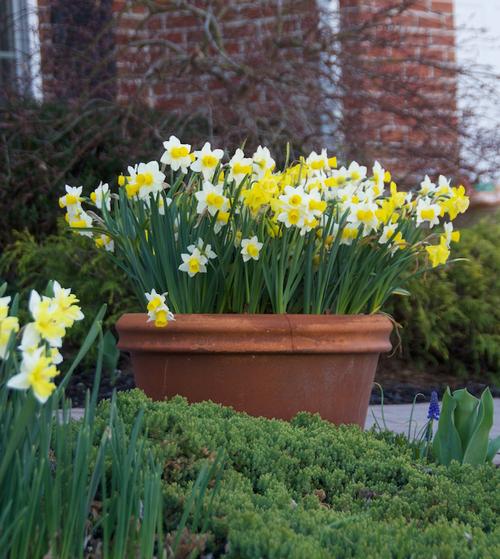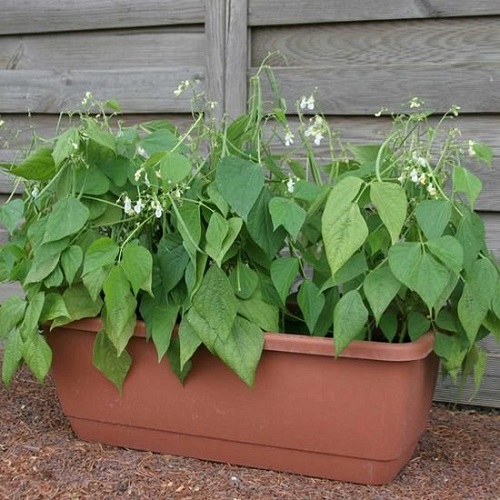Grow a healthier garden with Carrot Companion Plating! Read on to boost soil health, deter pests, and enjoy a bumper crop in your garden.
Carrot Companion Planting is an amazing process that helps in repelling pests, promotes soil health, and boosts the growth of your other plants.
Learn Growing Carrots In Containers
Companion Plants for Carrots
1. Chives
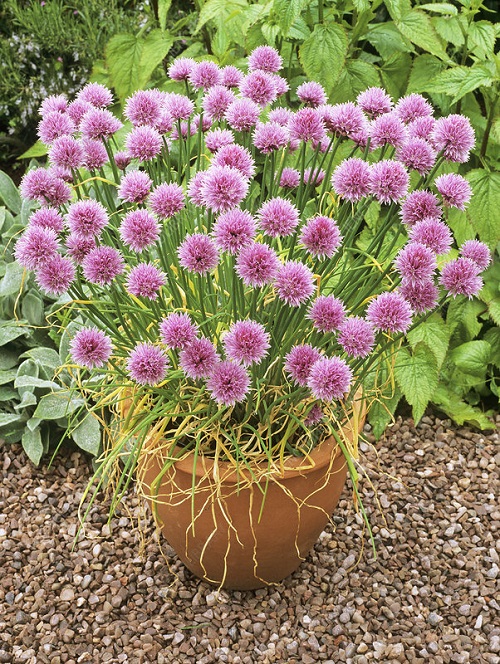
Botanical Name: Allium schoenoprasum
This herb repels pests like carrot flies and aphids and makes a good companion with carrots.
2. Onions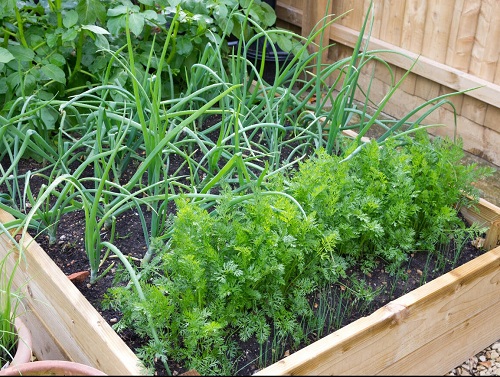
Botanical Name: Allium cepa
When planted with carrots, Onions deter pests and improve soil health.
3. Leeks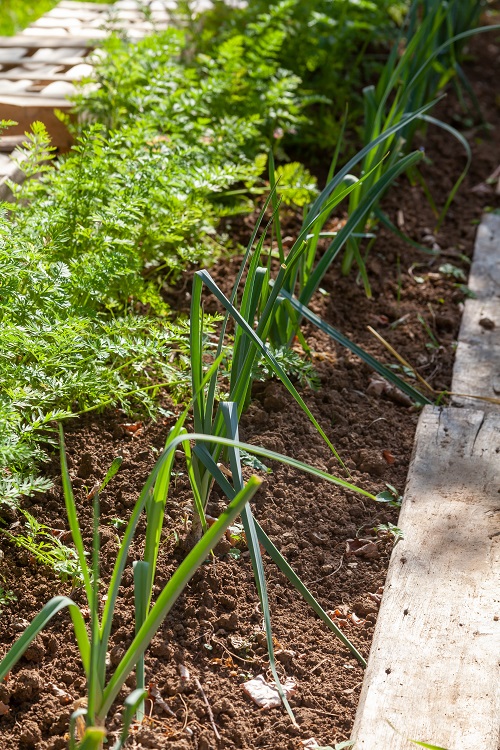
Botanical Name: Allium ampeloprasum var. porrum
Leeks attract beneficial insects that prey on pests harmful to carrots. It also improves the soil with nutrients.
4. Garlic
Botanical Name: Allium sativum
Garlic repels pests and diseases that can damage carrots.
5. Rosemary
Botanical Name: Rosmarinus officinalis
The Rosemary herb is a good companion plant for carrots and is highly beneficial to the carrot plant as it repels harmful flies, mosquitoes, and moths.
6. Sage
Botanical Name: Salvia officinalis
Sage is another excellent carrot companion and repels beetles, black flea beetles, and carrot flies.
7. Dill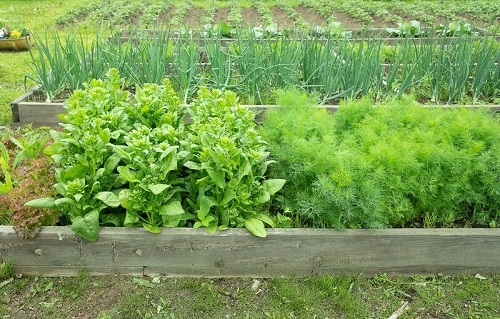
Botanical Name: Anethum graveolens
Dill is a great option to plant with carrots as it attracts lacewings and syrphid flies that prey on aphids and keep the carrots safe.
Note: Ensure there is not a lot of Dill around carrots, as that will impede carrot growth.
8. Parsley
Botanical Name: Petroselinum crispum
This herb attracts beneficial insects and repels pests that can damage carrots while also improving soil health and flavor.
9. Thyme 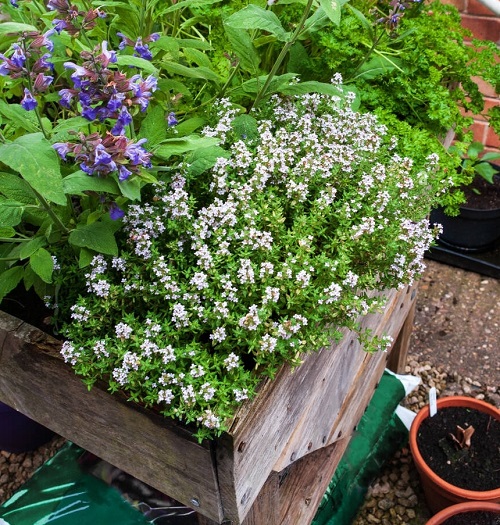
Botanical Name: Thymus vulgaris
Did you know that planting leeks, onions, parsley, or mint alongside your carrots can actually help prevent pesky carrot flies? These strong-smelling plants and herbs can mask the scent of your carrots, making it harder for the carrot root flies to find them.
10. Marigolds 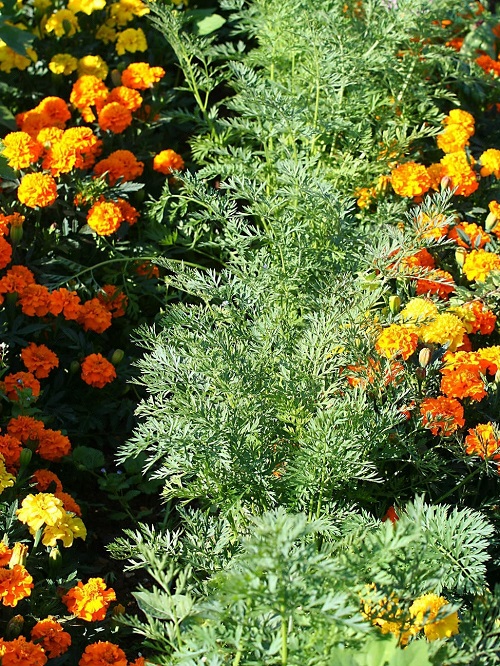
Botanical Name: Tagetes
Another of the best Companion Plants for Carrots, Marigolds are a great repellent of mosquitoes and other garden pests.
11. Nasturtiums
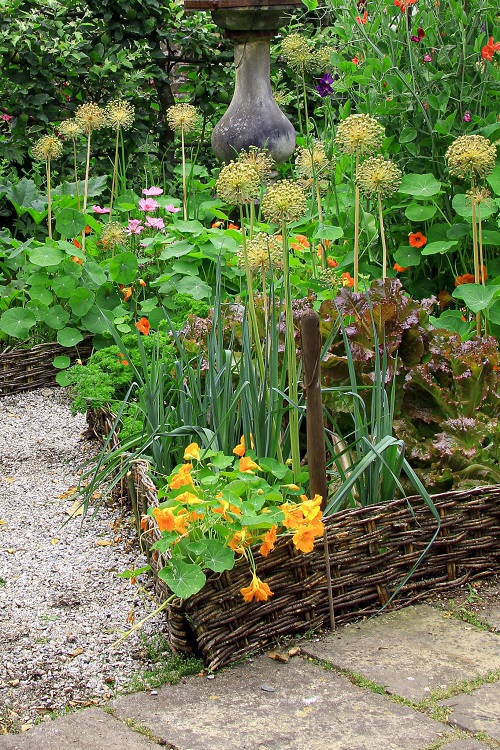
Botanical Name: Tropaeolum majus
Nasturtiums benefit their neighboring plants by deterring aphids and other pests. They also attract beneficial insects such as ladybugs and bees.
12. Lettuce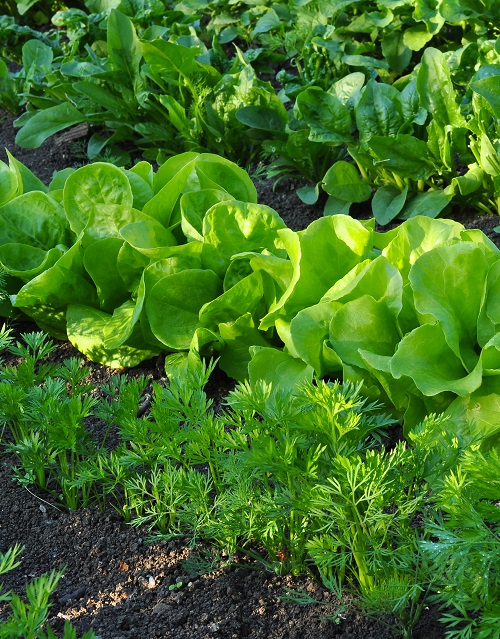
Botanical Name: Lactuca sativa
Lettuce and carrots grow well together because lettuce provides a natural mulch that keeps the soil moist and cool while also shading the carrots from the hot sun.
13. Spinach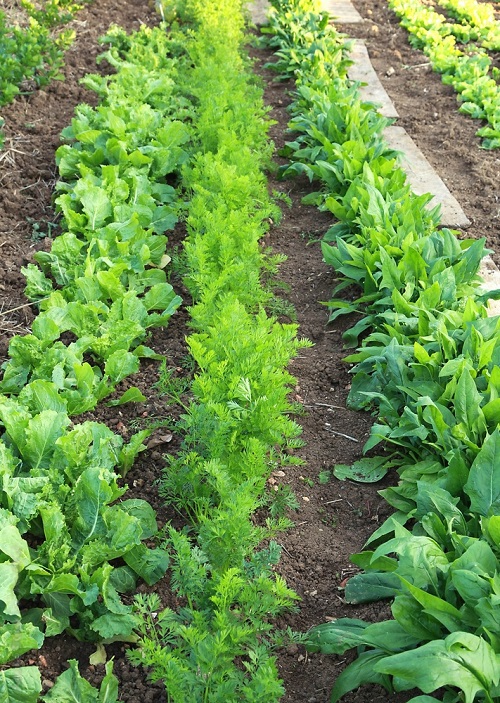
Botanical Name: Spinacia oleracea
Spinach helps to improve soil quality by adding nitrogen to the soil. These qualities make it a good neighbor to carrots.
14. Radishes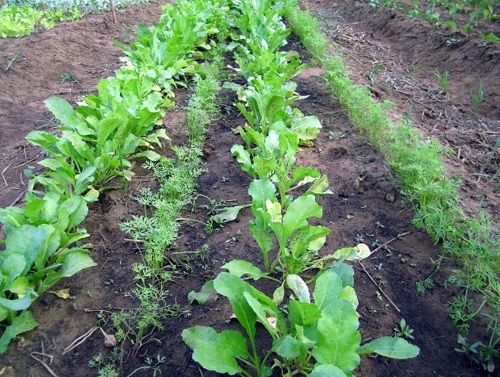
Botanical Name: Raphanus sativus
Radishes assist in breaking up compacted soil, making it easier for the carrots to grow.
15. Tomatoes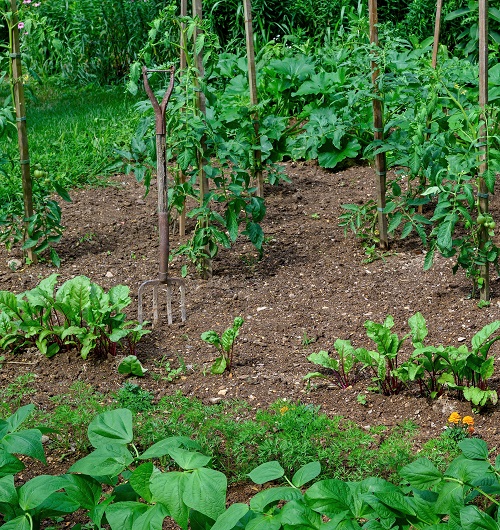
Botanical Name: Solanum lycopersicum
Tomatoes and carrots have opposite growing patterns – tomatoes grow tall, and carrots grow deep.
16. Beans 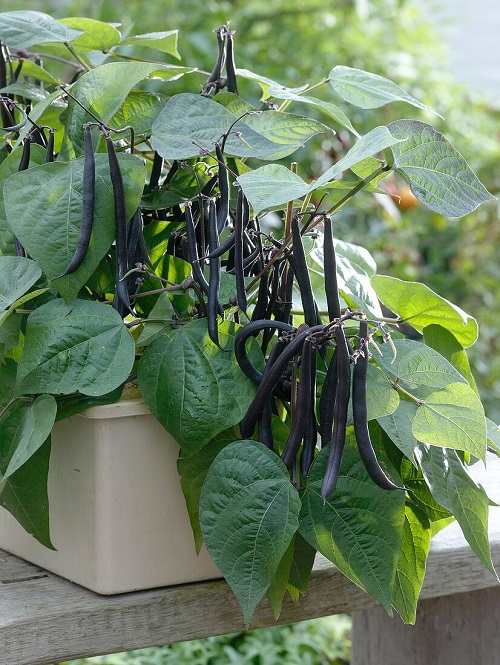
Botanical Name: Phaseolus vulgaris
Beans and carrots make great companions because beans add nitrogen to the soil, which benefits the carrots.
17. Peas 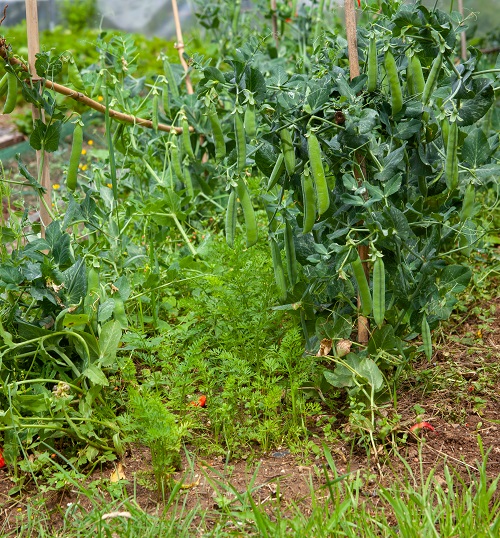
Botanical Name: Pisum sativum
Peas add nitrogen to the soil, and carrots support the pea plants.
Learn Growing Peas in Pots
18. Cabbage
Botanical Name: Brassica oleracea var. capitata
Cabbage releases volatile compounds that repel pests and attract beneficial insects, which benefits both plants.
19. Broccoli

Botanical Name: Brassica oleracea var. italica
Broccoli has a shallow root system that doesn’t compete with the deep roots of carrots.
20. Cauliflower
Botanical Name: Brassica oleracea var. botrytis
Cauliflower and carrots have similar growing conditions and nutrient requirements as carrots.
21. Oregano
Botanical Name: Origanum vulgare
Oregano is a fragrant herb that repels pests and attracts beneficial insects. It is perfect for companion planting carrots in containers.
22. Cilantro
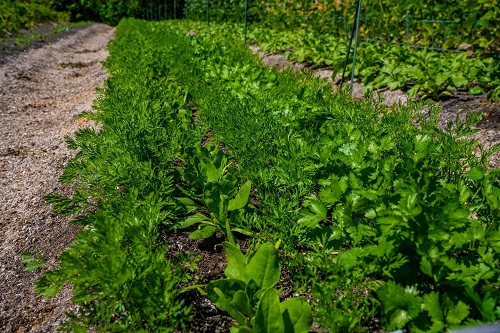
Botanical Name: Coriandrum sativum
Cilantro attracts beneficial insects that prey on pest insects harmful to carrots. The strong scent can also help mask the scent of carrots from pests.
Here are the Best Cilantro Companion Plants
23. Borage
Botanical Name: Borago officinalis
Borage is a nutrient-rich plant that attracts pollinators and beneficial insects. It helps to increase the yield of carrots.
24. Daffodil
Botanical Name: Narcissus
Daffodils are beautiful spring-flowering bulb that repels deer, rabbits, and rodents. They add visual interest to the carrot patch.
25. Scallion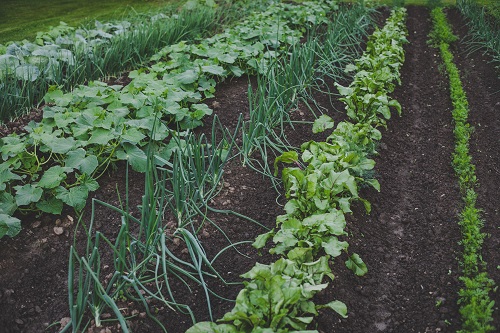
Botanical Name: Allium fistulosum
Scallions, also known as green onions, can help deter all pests from carrots with their strong scent.
26. Beets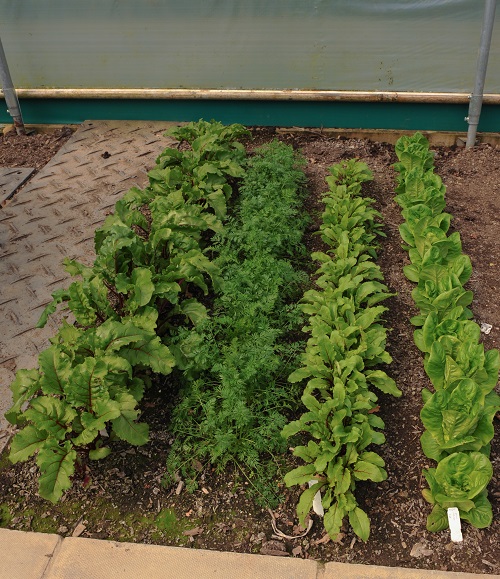
Botanical Name: Beta vulgaris
Beets are a root vegetable that can help improve soil health and fertility.
27. Turnip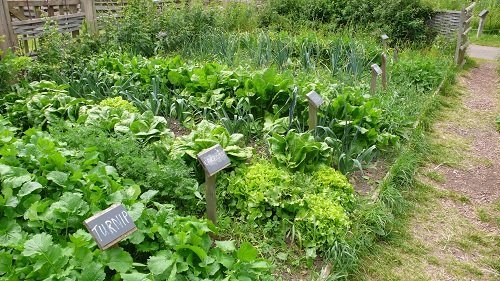
Botanical Name: Brassica rapa
Turnips are another root vegetable that can improve soil health and attract beneficial insects.
28. Bush Bean
Botanical Name: Phaseolus vulgaris
Bush beans are nitrogen-fixing plants that can help enhance soil fertility.
29. Brassica
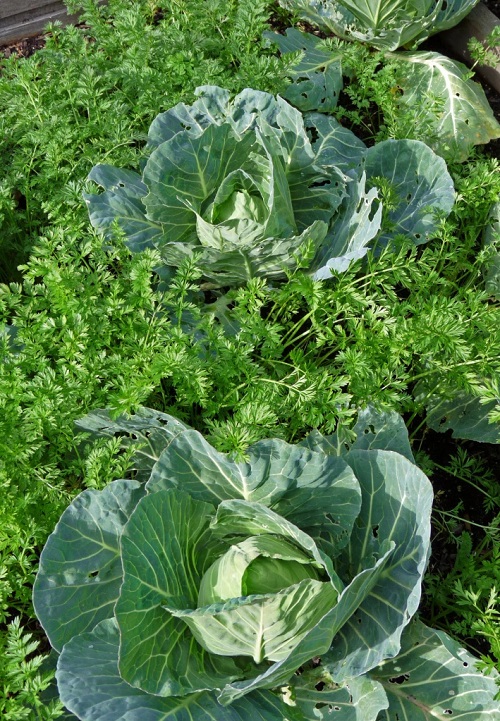
Botanical Name: Brassica
Brassicas can help repel root flies, keeping carrots safe from these. They also suppress weeds.
Bad Carrot Companion Plants
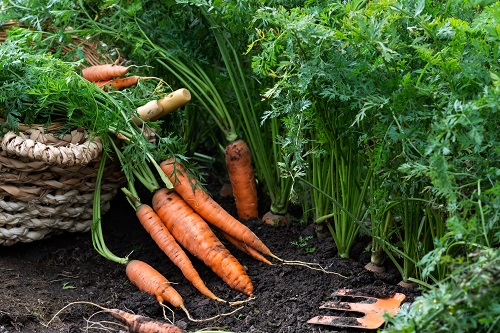
1. Pole Beans
Botanical Name: Phaseolus coccineus
Pole beans are known to be aggressive climbers that can take over and compete with carrots for space and nutrients.
2. Fennel
Botanical Name: Foeniculum vulgare
Another of the Bad Carrot Companion Plants, Fennel, attracts insect pests that can damage not only carrots but other vegetables in your garden as well.
3. Potato
Botanical Name: Solanum tuberosum
Potatoes are also root crops that can compete with carrots for space and nutrients, so it’s best to keep them separated.
4. Parsnips
Botanical Name: Pastinaca sativa
Both have a similar growing habit. Parsnips compete with carrots for nutrients and space. They also share many diseases and pests, so growing them separately will help prevent the spread of any maladies from one to the other.
5. Queen Anne’s Lace (Wild Carrot)
Botanical Name: Daucus carota
Wild carrots are a close relative of the domestic carrot. They can cross-pollinate with domesticated carrots, which results in bitter or off-flavored carrots.
6. Celery
Botanical Name: Apium graveolens
Celery is a heavy feeder and can compete with carrots for nutrients, water, and space.
7. Sunflowers
Botanical Name: Helianthus
Sunflowers can also shade out carrot plants, reducing their growth and yield. Additionally, they are heavy feeders and may compete with carrots for nutrients.
Here are the Best Sunflower Companion Plants
8. Mustard Greens
Botanical Name: Brassica juncea
Mustard green can produce chemicals that inhibit the growth of other plants, including carrots.
9. Strawberries
Botanical Name: Fragaria
Strawberries are prone to diseases and have shallow roots that compete with carrots for nutrients and water. Therefore, companion planting of carrots and strawberries is a bad idea.


